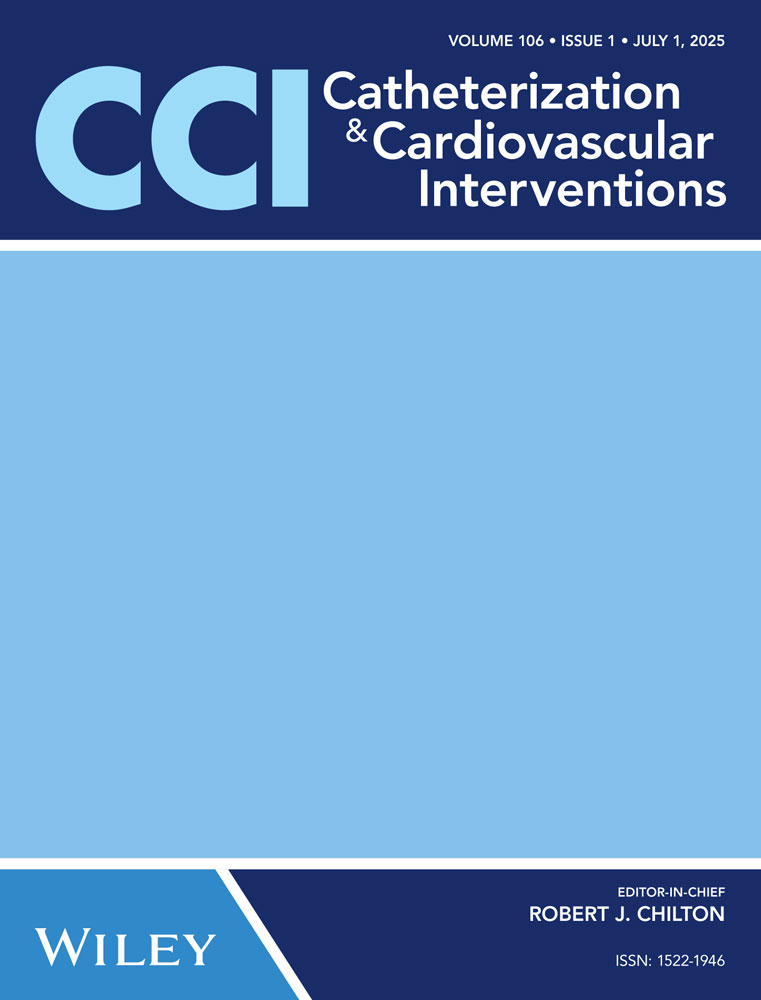Effect of a closure device on complication rates in high-local-risk patients: Results of a randomized multicenter trial
Abstract
Clinical trials have shown that coronary stenting is associated with a high level of complications at the access site. Arterial sealing devices have proven their efficacy in obtaining immediate hemostasis after sheath removal, in allowing early ambulation, and in improving patient comfort. However, there is no report showing a reduction of local complications related to their use. The purpose of this multicenter study was to compare randomly the efficacy of Angio-Seal versus compression methods of hemostasis in reducing the rate of access site complications after coronary angioplasty in 612 selected patients with higher risk of local events satisfying at least one of the following high-risk criteria: age > 70, previous puncture at the same site, history of hypertension, treatment with ticlopidine at least 2 days before the procedure, use of abciximab, 8 Fr access, prolonged heparin treatment after the angioplasty, and use of lytics if fibrinogen > 1 g/l. Group A (n = 306) had immediate sheath removal, Angio-Seal implantation, and cessation of bed rest 4 hr after the intervention. Group B (n = 306) had sheath removal according to local practice and cessation of bed rest 6–18 hr after the hemostasis procedure, also according to local practice. Clinical follow-up was done at 1 hr, 4 hr, 24 hr, discharge, and 7 days and a systematic color flow duplex sonography was performed to confirm diagnosis of access site complication. In group A, device deployment and immediate hemostasis were obtained in, respectively, 96.8% and 87% of patients. Time to hemostasis was shorter in group A: 5 vs. 52 min (P < 0.001). Cessation of bed rest was dramatically reduced in group A (438 ± 450 min) vs. group B (952 ± 308 min; P < 0.001). The cumulative rate of complications, using a composite primary endpoint, at 7 days was significantly different between the two groups: 5.9% of group A patients and 18% of group B patients (P < 0.001). This difference was mainly due to the dramatic reduction of prolonged bleeding in group A patients. Angio-Seal device use in high-local-risk patients allows immediate sheath removal and hemostasis with a reduction of local event rate despite a higher level of anticoagulation, compared to regular compression techniques, directly related to a dramatic decrease of prolonged bleeding. Cathet Cardiovasc Intervent 2003;58:285–291. © 2003 Wiley-Liss, Inc.




